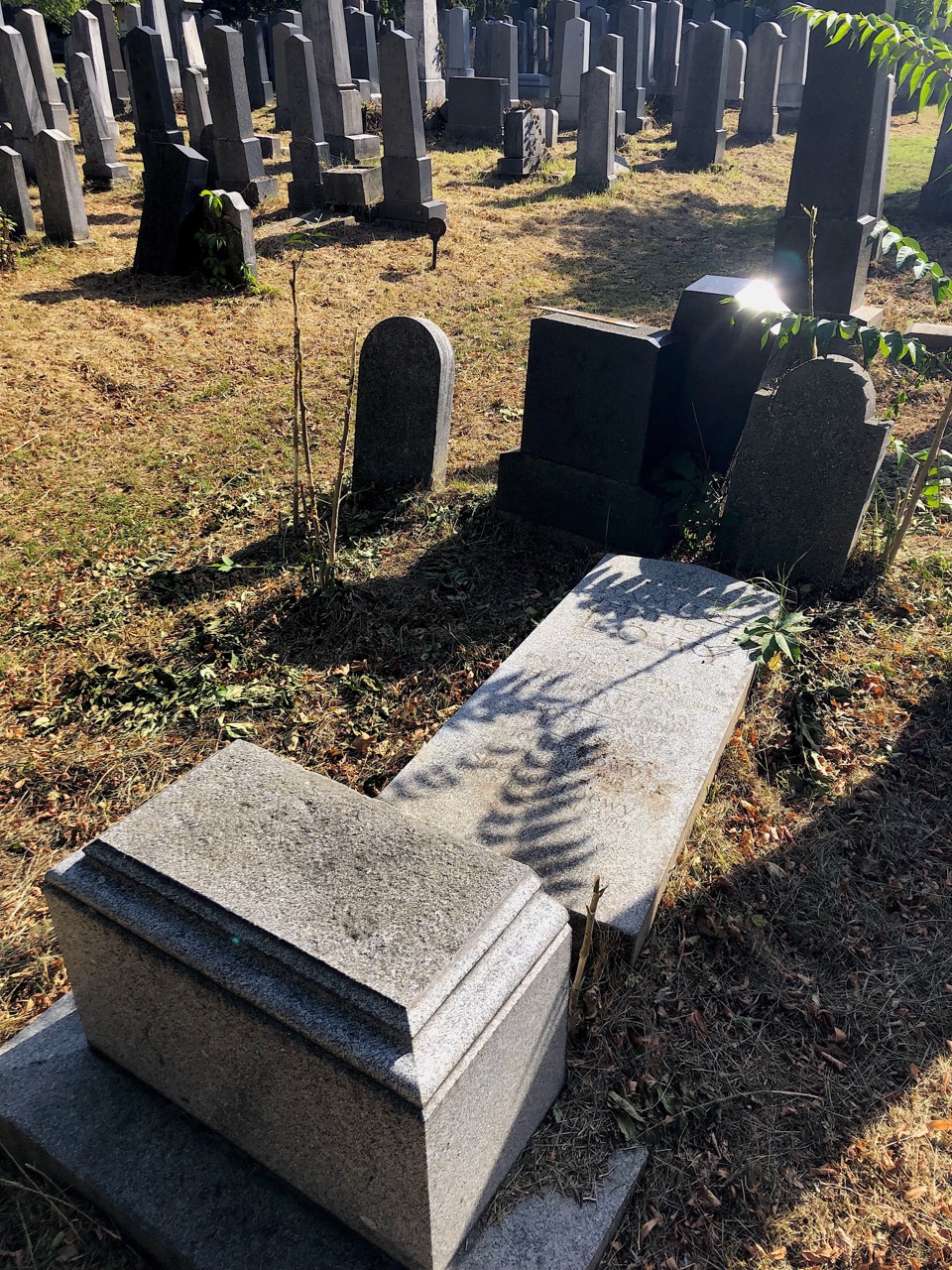Vienna, 30 March 1931
A Lion’s Heart for Viennese
Theatre History
A portrait of Siegfried Löwv’s tireless efforts as a local theatre historian
by our correspondent Victoria Luft
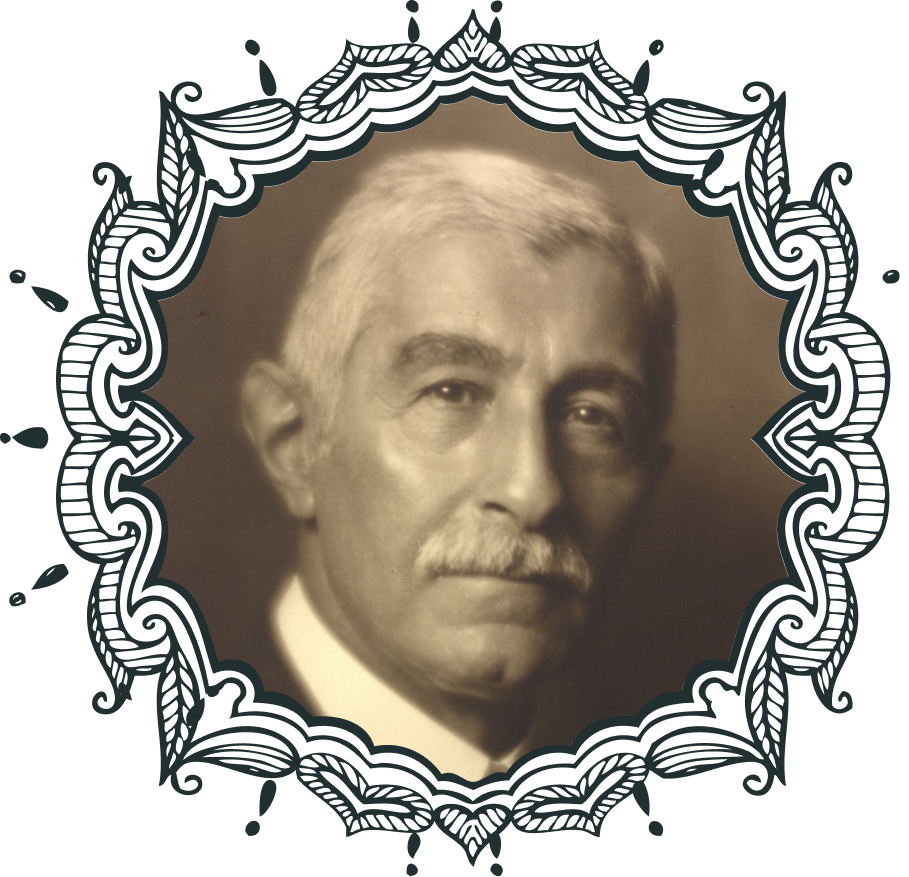
© ÖNB-Bildarchiv / picturedesk.com, sign. Pb 580.555-F 424
Raising the Curtain on a Forgotten Theatrical World
Wracked by the horrors of war and the misery that followed, it is difficult at present to recall the glorious theatre days of the past. Vienna – the city where the arts and sciences were a centre of everyday life and were in no way inferior to the metropolises of Paris, London, and Berlin – is awaiting its revitalization with fresh and talented artists, while the old favourites of the Burgtheater and other theatres are gradually disappearing. A new era is dawning.
However, in order to continuously remember the people of the past and to pay tribute to their outstanding work, Siegfried Löwy has devoted himself to the history of Viennese theatre and its prominent figures over the past decade. His nimble pen is responsible for the fact that between 1921 and 1926, a total of six works on the subject were created – almost one book per annum! Löwy’s works, such as Aus Wiens großer Theaterzeit. Monographien und persönliche Erinnerungen, die Deutsche Theaterkunst von Goethe bis Reinhardt (‘From Vienna’s Grand Theatrical Era: Monographs and Personal Recollections on German Theatrical Art from Goethe to Reinhardt’) and Das Burgtheater im Wandel der Zeiten. Kleine Bausteine zur Geschichte dieser Kunststätte (‘The Burgtheater Throughout the Ages: Small Building Blocks of the History of this Art Venue’) have long since become standard works in any library devoted to the history of theatre. Milieu and local descriptions are mixed with personal narratives and bear witness to Löwy’s extraordinary activity as a local theatre historian and chronicler. For he moved in artistic circles like hardly anyone else and was very well acquainted with our Viennese icons Alexander Girardi, Ludwig Gabillon, Josefine Gallmeyer, and Antonie Janisch.
The huge circle of acquaintances and the profound knowledge suggest that Mr. Löwy must be not 70, but well over 100 years old, according to a colleague from the Wiener Montag-Journal. It is indeed thanks to his many years of friendly exchange with Hugo Thimig, Johann Strauss II, Katharina Schratt, and countless others – coupled with his astounding expertise – that these culturally and historically significant booklets present a vivid picture of Vienna’s past and will hopefully be of use to future generations as chronicles of the theatre city: both international and genuinely Viennese.
Preserving Artistic Memory - A Matter of the Heart
Löwy cultivated a particularly intimate friendship with the great ‘waltz king’ Johann Strauss II, whose musical creations and influences in Viennese cultural society he also honoured in writing. With the book Rund um Johann Strauß. Momentbilder aus einem Künstlerleben (‘Around Johann Strauss: Snapshots from an Artist’s Life’), which appeared in 1925 at just the right time – to celebrate the composer’s 100th birthday – Löwy described the lesser-known chapters from Strauss’s life in his familiar voice, chatty but dignified, and also enriched them with wonderful illustrations and a wealth of anecdotal material. But writing is not enough.
Anyone who hears the name Löwy thinks first and foremost of his persistent commitment to the preservation of monuments. The dedication with which he worked ten years ago to erect the Strauss Monument, which was unveiled in the city park on 26 June 1921, is remarkable. Löwy does not rest until a project is successfully completed. The idea for the memorial was put on the table as early as 1903, and a constituted committee – Siegfried Löwy was an active member – vigorously and by all means tried to raise the required sum of money through various channels. Truly, the preparation of a silent film about Strauss can be considered a stroke of genius, which, as we remember, had a not insignificant success at the box office. Löwy wrote the screenplay together with Alfred Deutsch-German, and Carl von Zeska was the director. The premiere of the film Johann Strauss an der schönen blauen Donau (‘Johann Strauss on the Beautiful Blue Danube’), which took place on 29 November 1913, ended to rapturous applause – this was also due to the merit of the master Alfred Grünfeld, who conducted the orchestra that evening.
g
Siegfried Löwy always played a leading role in the implementation of such ideas in a modest manner, and without his involvement in the numerous committees we would miss the monuments of Ferdinand Raimund, Josef Kainz, or Alexander Girardi. The latter received his on 4 May 1929, at the unveiling of which Siegfried Löwy, as president of the monument committee, gave a touching speech. Although Löwy is currently in poor health, this restless spirit continues to write and is already sitting on his next batch of essays on theatrical history, which we will soon have the pleasure of reading.
(front left) and Heinrich Glücksmann (back right), silent film, premiere on 20.11.1913 at the Opernkino, directed by Carl von Zeska,
Screenplay: Siegfried Löwy, Alfred
German-German © Filmarchiv Austria
Siegfried Löwy
born 1 November 1857, Vienna
died 8 May 1931, Vienna
Biography
On the first day of November 1857 Siegfried Löwy (also Loewy) saw the light of day in Vienna as the first of three children of the married couple Rosa (née Toneles, 1836–1906) and Heinrich Rudolf Löwy (1815–1884). In addition to two younger sisters, Jenny (1866–1918) and Gisela (1867–1882), Siegfried had three older half-siblings, descended from his father's first marriage to Mina Löwy (née Fürst, 1818–1892). Heinrich Rudolf Löwy, a native of Bratislava, moved to Vienna in 1840 with his first wife and initially worked as a tailor. Later he became a goods commission agent as well as the owner of an agency business at Werderthorgasse 4 in the 1st district. The economic interest remained in the family. Siegfried graduated from high school and, after attending the Vienna Commercial Academy and the State Trade Academy in Mühlhausen (Thuringia), he intensively explored national economic issues. At the age of 16, he began working as a journalist and freelance writer. His first essays and editorials concerned both economic and political topics, but because of his extraordinary interest in theatre, Löwy also published a large number of theatre reviews in various Austrian daily newspapers such as the Neues Wiener Tagblatt and the Neue Freie Presse. He also wrote for German newspapers as a Viennese correspondent and feuilletonist. With the founding of the Österreichische Volkszeitung in 1888, he became the editor in charge of the business section.
On 16 September 1889 Siegfried Löwy married the actress Antonie Hartmann (1861–1940). The couple had a daughter, who died shortly after birth, and four sons. Through his marriage Löwy was known by everyone in the Viennese art society of his time. Among his closest circle of friends were writers, actors, and composers such as Alexander Girardi (1850–1918), Josef Kainz (1858–1910), Felix Salten (1869–1945) and Johann Strauss II (1825–1899). The local historical culture of remembrance was an important concern for Löwy, and it is thanks to his tireless commitment that the erection of countless monuments to Viennese personalities have been successfully realized. Starting in the 1920s, he devoted himself more intensively to Viennese theatre history, writing several important monographs as well as excellent articles on theatrical history for the theatre and cultural newspaper Die Bühne. With unwavering dedication, he also found time to do charitable work for society: At the beginning of World War I, he founded the war welfare organization Schwarz-gelbes Kreuz with the author Alice Schalek (1874–1956), supported the German Artists’ Aid organization, and advocated for the widows and orphans of the journalists’ and writers’ association Concordia, in whose administration he was active for a long time. He continued his social commitment alongside his journalistic and literary work until the end of his life on 8 May 1931.
‘His inclination, indeed his passion, had shown him the way and through it he had become the amiable theatre chronicler, theatre biographer, and theatre historian, who with his profound knowledge had been in the liveliest intercourse with the living actors and still held familiar dialogue with those long gone.’
m
Neues Wiener Journal, 12 May 1931
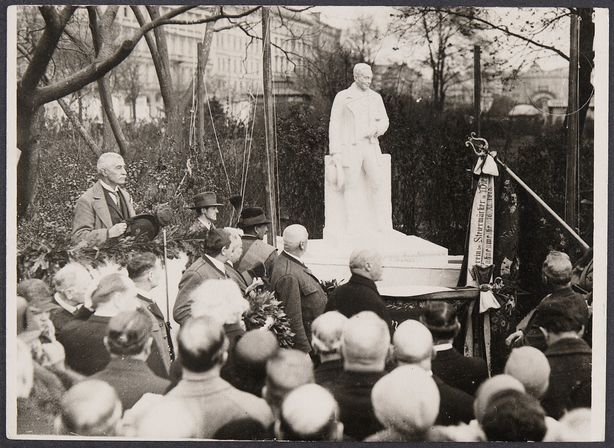
© KHM-Museumsverband
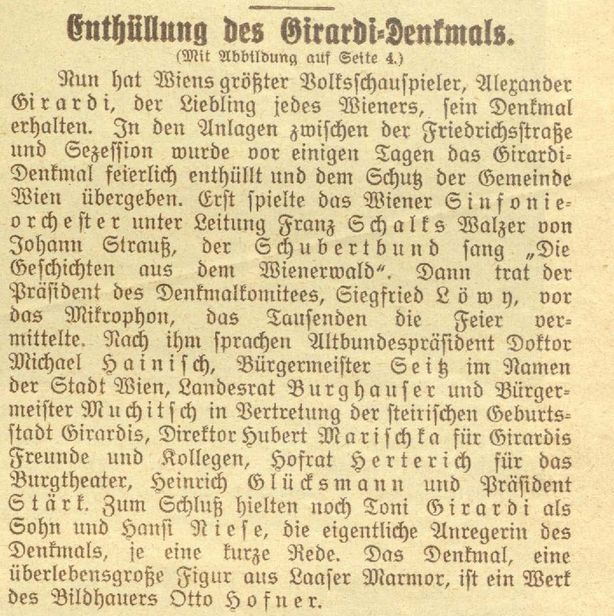
Source: ANNO/Austrian National Library
What remains?
k
It sounds paradoxical: a forgotten man who himself worked against forgetting. This is how the fate of Siegfried Löwy, who played such an important role for the memorial culture of the Viennese cultural society, can be described.
On 8 May 1931, at the age of 74, Siegfried Löwy died suddenly as a result of urological surgery. With an extraordinarily strong participation of the literary and artistic world, his funeral service took place three days later at the Vienna Central Cemetery. In the first days after his death, there was hardly an Austrian or German daily newspaper that did not write an obituary of the esteemed journalist on a grand scale. Löwy is described as an extremely versatile, helpful, and amiable figure in Viennese society, from whom only death literally took the ever-active pen out of his hand.
h
There are no known living descendants from Siegfried Löwy’s large family. His wife, Antonie, formerly celebrated as an operetta singer and actress, died in Vienna on 9 April 1940 at the age of 79. Her passing had no media coverage and her final resting place remains unknown. The eldest son Heinrich Rudolf (called Harry) (1891–1917) died in World War I in September 1917, in Turkey. His brother Paul (1893–1941), who changed his name to Paul Hansen in 1931, worked as a director and playwright as well as actor in the Viennese theatre scene. He died on 15 December 1941; the circumstances and also his final resting place are unknown. There is little information about the two youngest brothers, Felix (1896–1957) and Ernst (1903–1970). What can be proven is that they changed their last name to Hartmann and survived the Holocaust. Ernst worked as a music publisher until his death. Felix married twice and had a son, who died in 1944 at the age of 15.
The present condition of the Löwy family grave in the Central Cemetery is representative of the forgotten theatrical historian and writer. Of all people, the man who was a dedicated campaigner for the erection of monuments has not received an honorary grave from the City of Vienna, and his grave is in a dilapidated state: the gravestone lies overturned in the grass and is overgrown by vegetation.
Löwy is also overlooked in Viennese theatre historiography. His monographs and numerous theatre-historical articles have not yet been subjected to scholarly analysis, and the person of Siegfried Löwy as a theatre historian, chronicler, and biographer has not yet been studied. Furthermore, a comprehensive history of Vienna’s monuments to artists is missing. The immense influence of Löwy on the politics of monuments and remembrance in the Second Republic thus remains unmentioned.

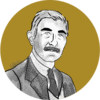

![[Translate to English:] Title page of an old document with decorated border. The text reads: 'Aus Wiens großer Theaterzeit: Monographien und persönliche Erinnerungen von Siegfried Loewy'. Underneath is the publisher 'Paul Neffler' and the address 'Wien, I. Dithmarsg.1'](/fileadmin/user_upload/Buch_Aus_Wiens_gro%C3%9Fartiger_Theaterzeit__Cover.jpg)
